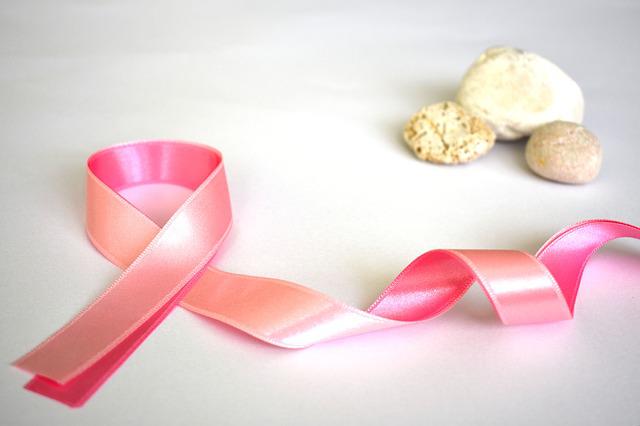Table of Contents
Introduction
Cancer was the most dreaded disease of all time. Highly unrecognized, hidden somewhere in the body, waiting to grow, and trying to engulf all the normal healthy cells of the body and turning them into cancerous ones. After the cancerous cells grow their armies, they start producing symptoms.
Common cancer symptoms –
- Weakness of body
- Weight gain or loss
- Change in bowel and bladder habits
- Skin changes – color – yellow, red, dark.
- Sores on the skin that will not heal
- Changes in the existing moles on the body
- Continuous and stubborn cough
- Trouble in breathing
- Unusual bleeding or discharge from the orifices
Then comes the diagnosis of which type of cancer caused all the symptoms, followed by chemotherapy, cancer drugs, lots of yoga, meditation, and relaxation therapies.
Now we are in cancer remission. It gets accompanied by the long-term side effects of cancer treatment.
Five long-term side effects of cancer
-
Elevated levels of PTSD, anxiety, and depression
Research shows nearly 23% of cancer patients suffer from anxiety, 32% suffer from PTSD, and 58% suffer from depression. Cancer takes a toll on the whole mind of a person.
Solution?
- Enhancing self-esteem,
- having a greater purposefulness in life,
- feeling heightened spirituality, and
- possessing a greater sense of peace.
Difficulties
Two of the negative consequences of cancer are sexual dysfunction and infertility. Men have problems such as erectile dysfunction and reduced blood supply to the penis due to damage to the autonomous system of the body. Women have sudden premature ovarian failure and infertility.
-
Neuropathies – numbness, pain, fatigue, related weakness
There occurs damage to the nerves outside the brain and spinal cord in cancer. This situation is called peripheral neuropathy. Peripheral neuropathy ensues after chemotherapy sessions. Nearly 30 to 40% of cancer patients suffer from neuropathy due to neurotoxic chemotherapy.
-
Cardiovascular disease – hypertension, heart failure
Cancer survivors who are 65 and above are at a high risk of developing congestive heart failure, coronary artery disease, hypertension, and irregular heartbeats.
Symptoms include –
- Shortness of breath
- Chest pain
- Dizziness
- Swollen hands and legs
Dental problems
Cancer treatment can cause dental problems such as –
- Risk of infection of tooth enamel
- Gum disease
- Lower production of saliva
- Dry mouth
Other side-effects of cancer treatment
- Anger
- Guilt
- Feeling alone
- Fear of getting cancer back
- Relief
- Gratitude
- Hearing loss
- Osteoporosis
- Bladder control problems
Blood disease survivors don’t necessarily have genuine long haul or late impacts of treatment. For the people who do, a few long haul impacts, like exhaustion, can wait for months or years after treatment. Late impacts, for example, ailments like coronary illness and different malignant growths, don’t show up until years after treatment closes. Impacts can go from gentle to serious.
Consult with your PCP about conceivable long haul and late impacts. Your gamble for growing long haul or late impacts can be affected by your:
Treatment type and span
Age at the hour of treatment
Orientation
Generally speaking wellbeing
Long haul and late impacts can include:
Mental impacts
Disease therapies, for example, chemotherapy and radiation treatment can create some issues with mental capacities, for example, fixation, memory and the capacity to perform various tasks (to monitor and do various errands simultaneously). These impacts are in some cases alluded to as “chemo cerebrum” or mind haze.
Mental impacts
You could encounter long haul mental impacts after treatment closes, including discouragement or post-awful pressure problem.
Actual impacts
Chemotherapy and Other Drug Therapies
Contingent upon your treatment type and length and your singular gamble factors, including hereditary qualities and generally wellbeing, you might be in danger for:
Heart conditions/harm (constant cardiovascular breakdown, heart muscle injury)
Thyroid issues
Lung harm (scarring, irritation, intense respiratory trouble condition, lung disappointment)
Fruitlessness, remembering untimely ovarian disappointment and untimely menopause for ladies and low testosterone levels and sperm includes in men
Osteoporosis (low bone thickness)
Hearing misfortune
Waterfalls
Optional tumors, like intense myeloid leukemia and myelodysplastic conditions
Fringe neuropathy
Weakened safe framework work
Radiation Therapy
Radiation treatment utilizes ionizing radiation to kill disease cells. Hence, some malignant growth survivors who have had radiation treatment to the head and neck can create:
Hypothyroidism or hyperthyroidism
Hearing misfortune
Vision issues like waterfalls or glaucoma
Dental anomalies, like dry mouth or depressions
Mind or thyroid disease
Osteoporosis (low bone thickness)
Radiation treatment to the chest can cause:
Lung harm (scarring, aggravation, breathing troubles)
Heart harm (scarring, aggravation, coronary illness)
Osteosarcoma (bone disease)
Bosom disease
Thyroid disease
Hypothyroidism or hyperthyroidism
Ladies under age 30 who had radiation to the bosom region are in danger of creating bosom disease 15 to 20 years after therapy. Ladies treated before age 21 have an essentially more serious gamble than more seasoned ladies and ought to have yearly mammograms and two times yearly clinical bosom tests, beginning 10 years after treatment.
Radiation treatment can likewise influence richness for all kinds of people. All out body light for people going through a hematopoietic undifferentiated organism relocate can cause ovary or testicles disappointment, prompting ripeness issues. High-portion radiation to the spleen can expand the gamble of creating rehashed bacterial diseases.
Impact on Daily Activities
Disease treatment’s mental, mental and actual impacts could influence your regular exercises. Backing and help are accessible for disease patients and survivors, who might confront:
Kinds of late impacts
Almost any malignant growth treatment can cause late impacts. Furthermore, various medicines can cause different late impacts. The following is a rundown of the more normal late impacts. Consult with your primary care physician about any worries you make about a particular late difference.
Issues from a medical procedure. Late secondary effects from a medical procedure rely upon the kind of malignant growth and where in the body you had a medical procedure:
Overcomers of Hodgkin lymphoma, particularly those analyzed before 1988, frequently had their spleens eliminated. The spleen is an indispensable organ for the safe framework. Eliminating it is connected with a higher gamble of contaminations.
Overcomers of bone and delicate tissue diseases might have lost part or the entirety of an appendage. This can cause physical and profound impacts. One model is ghost appendage torment. This is feeling torment in the appendage that was taken out despite the fact that it is no longer there. Restoration can assist with peopling adapt to actual changes from treatment.
Individuals who had radiation treatment or medical procedure to eliminate lymph hubs might foster lymphedema. Lymph hubs are small, bean-molded organs that assist with battling disease. Lymphedema is when lymph liquid develops and causes enlarging and torment.
Individuals who had specific medical procedures in the pelvis or mid-region will be unable to have youngsters. This is called fruitlessness. Look into fruitfulness concerns and safeguarding ripeness in men and in ladies.
Heart issues. Both chemotherapy and radiation treatment to the chest can cause heart issues. A few survivors might have a higher gamble. This incorporates the people who:
Gotten treatment for Hodgkin lymphoma as a youngster
Are 65 and more seasoned
Gotten higher portions of chemotherapy
Gotten specific medications, for example, trastuzumab (Herceptin, Ogivri) and doxorubicin (Adriamycin, Doxil)
The following is a rundown of normal heart conditions. Converse with your PCP immediately on the off chance that you have any of these side effects:
Congestive cardiovascular breakdown (CHF) is debilitating of the heart muscle. Side effects incorporate windedness, tipsiness, and enlarged hands or feet.
Coronary corridor infection is a kind of coronary illness. More normal in those had high portions of radiation treatment to the chest. Side effects incorporate chest agony and windedness.
Arrhythmia is an unpredictable heartbeat. Side effects incorporate dizziness, chest torment, and windedness.
Instances of medications that can cause heart issues:
Trastuzumab
Doxorubicin
Daunorubicin (Cerubidine)
Epirubicin (Ellence)
Cyclophosphamide (Genoxal, Mitoxan)
Osemertinib (Tagrisso)
Inquire as to whether the medicines you are getting can influence your heart. The person in question might check your heart capacity and watch for harm during and after treatment. Your primary care physician might utilize a test called echocardiography, additionally called a reverberation. Other heart tests might incorporate an actual assessment, an electrocardiogram (EKG or ECG), and a multigated procurement check (MUGA) examine.
Hypertension. This is additionally called hypertension. It might occur alongside CHF (see above). Or then again it could be a different side effect. On the off chance that you have hypertension, your primary care physician might watch it all the more intently during disease treatment. Sped up hypertension is when circulatory strain out of nowhere and quickly rises. It frequently causes organ harm. So it is indispensable to move clinical assistance immediately.
Some malignant growth medications can cause hypertension. Instances of these medications include:
Bevacizumab (Avastin, Mvasi)
Sorafenib (Nexavar)
Sunitinib (Sutent)
The gamble of hypertension brings down once an individual quits ingesting these medications. Be that as it may, the drawn out impacts are not known. Survivors with expanded risk for hypertension ought to work with their medical care group to bring down this gamble. This might incorporate testing pulse, getting more fit, eating less salt, taking medication, and being dynamic.
Lung issues. Chemotherapy and radiation treatment to the chest might hurt the lungs. Malignant growth survivors who got both chemotherapy and radiation treatment might have a higher gamble of lung harm. Individuals who have had lung infection and more established grown-ups may have more lung issues.
Drugs that might cause lung harm include:
Bleomycin (Blexane)
Carmustine (Becenum, BiCNU, Carmubris)
Methotrexate (various brand names)
The late impacts to the lungs might include:
An adjustment of how well the lungs work
Thickening of the coating of the lungs
Aggravation of the lungs
Trouble relaxing
Endocrine framework issues. A few sorts of malignant growth medicines might influence the endocrine framework. This framework incorporates the organs and different organs that make chemicals and make eggs or sperm. Malignant growth survivors in danger for chemical changes from treatment need customary blood tests to gauge chemical levels.
Menopause. Numerous disease medicines might make a lady have menopausal side effects. These medicines include:
Medical procedure to eliminate a lady’s ovaries (oophorectomy)
Chemotherapy
Chemical treatment
Hot blazes
Osteoporosis
Bladder control issues
Ladies taking chemical treatment who have not had to deal with menopause might have lighter and less feminine periods. Feminine periods might stop totally for different ladies. After treatment, feminine periods might return for a few more youthful ladies.
Chemical issues for men. A few medicines might make men experience side effects like menopause. These incorporate chemical treatment for prostate disease or medical procedure to eliminate the gonads. Side effects might include:
Barrenness. Medicines that influence regenerative organs or the endocrine framework increment chance of barrenness. Barrenness implies not having the option to become pregnant or father a kid. Yet, a few times it is extremely durable. Dive deeper into fruitfulness concerns and saving richness in men and in ladies.
Chemical issues from head and neck radiation treatment. Radiation treatment to the head and neck region can bring down chemical levels.
Bone, joint, and delicate tissue issues. Chemotherapy, steroid meds, or hormonal treatment might cause diminishing of the bones, called osteoporosis, or joint agony. Immunotherapy might create some issues in the joints or muscles. These are known as rheumatologic issues. Individuals who are not genuinely dynamic might have a higher gamble of these circumstances.
Read more interesting articles at TheInspirespy

